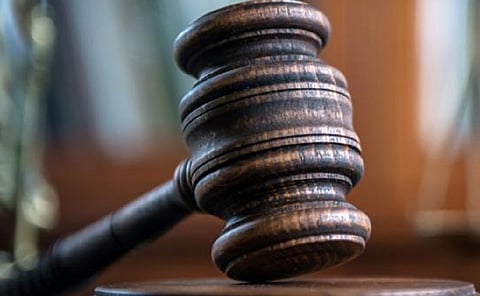

Bio-Medical Waste
Segregation of novel coronavirus disease (COVID-19) waste from general waste was necessary, the National Green Tribunal (NGT) said in its order of July 20, 2020.
This was to not only avoid additional load on common bio-medical waste treatment and disposal facility (CBWTF) incinerators, but also to stop further contamination adversely affecting public health, it said.
The Central Pollution Control Board (CPCB) had filed its report on June 17, mentioning the steps taken on the issue and ground status of compliance. The report said that improper segregation of waste had been reported from COVID-19 isolation wards, quarantine centers and quarantine homes.
According to the provisions under Biomedical Waste Management Rules, 2016, Solid Waste Management Rules, 2016 and CPCB’s COVID-19 guidelines, segregation of wastes was essential for effective management of wastes.
Mixing of general solid waste with biomedical waste would result in additional load on CBWTF incinerators, which were not designed for domestic solid waste. The CPCB report said that non-segregation of waste resulted in incineration of contaminated plastics.
The NGT said that there should be regular monitoring by the chief secretaries, state pollution control boards (PCB) and pollution control committees (PCC) and health departments in the states and union territories.
Where waste was not going to CBWTF incinerators, deep burial systems should be maintained — taking all due precautions to prevent harm to the environment, the order said.
The tribunal also asked the CPCB to submit a consolidated report compiled from information collected from all the state PCBs / PCCs. The report should contain information, as on October 30 and should be filed by December 31.
Kasganj tree-cutting
The NGT on July 20 directed the Principal Chief Conservator of Forests (Head of Forest Force), Uttar Pradesh and the State Pollution Control Board to file a report on the cutting of trees in Kasganj district.
The order came in the wake of the application filed by Satyanarayan Upadhyaya. It was said that the state was widening roads from Soron to Etah and from Soron to Patiyali.
Already, 3,000 trees across roads from Soron to Etah had been felled and another 7,230 more trees were in the process of being cut down on the way between Soron and Patiyali.
Niwari water bodies
The bench of Justice Adarsh Kumar Goel and Justice Sonam Phintso Wangdi of the NGT took up the matter of discharge of untreated sewage in water bodies in Niwari town, Ghaziabad, Uttar Pradesh. Disposal of waste in ponds and Upper Ganga Canal had endangered public health.
A report was filed by the CPCB on February 4 based on a site inspection.
Noticing deficiencies, the report had recommended some steps like:
An action taken report was filed by the Nagar Panchayat, Niwari on July 16, wherein it was stated that the drain connecting one of the ponds had been cleaned and the work of removing floating weed had started. Water from another pond had been pumped out to a drain and the process of phytoremediation was being planned.
A third pond was in the process of being desilted and the construction of a wall had been completed. A polluting factory near the water bodies had been closed. Municipal solid waste was being collected and composting done, according to the Nagar Panchayat report.
The Oversight Committee, headed by Justice SVS Rathore, was asked by the NGT to look into the status of compliance after three months and give its independent report on the matter.